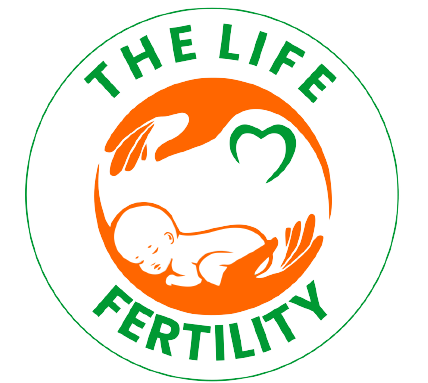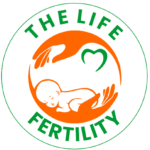Introduction
Understanding the intricate relationship between your hormones and your ability to conceive is a fundamental step for any woman exploring her fertility. These chemical messengers orchestrate every aspect of your reproductive system, from the maturation of eggs to the preparation of the uterus for pregnancy.
When this delicate hormonal harmony is disrupted, a condition known as hormonal imbalance, it can significantly impact your fertility. This imbalance, where certain reproductive hormones are either too high or too low, can manifest in various ways, often hindering the natural process of conception. However, recognizing the crucial link between hormonal health and fertility is the first stride toward addressing potential challenges.
By understanding the key female hormones involved – such as estrogen, progesterone, luteinizing hormone (LH), follicle-stimulating hormone (FSH), and others – we can begin to appreciate how disruptions in their levels can affect ovulation, the menstrual cycle, and ultimately, your ability to get pregnant. Exploring ways to address female hormone imbalance offers a pathway toward improved reproductive health and increased chances of conception.
The Major Players: Key Hormones Influencing Female Fertility
Several key hormones play pivotal roles in a woman’s reproductive health and fertility. Maintaining a balanced interplay of these hormones is essential for the regular functioning of the menstrual cycle and the ability to conceive.
Estrogen: The Foundation of the Menstrual Cycle. This hormone is primarily responsible for the development and maintenance of female reproductive organs. It also plays a crucial role in regulating the menstrual cycle, including the thickening of the uterine lining. When considering female hormone imbalance, understanding estrogen levels is vital. Both excessively low and high estrogen can disrupt ovulation and the overall health of the reproductive system, impacting egg development and the receptivity of the uterus.
Progesterone: Preparing for Implantation. Produced mainly after ovulation, progesterone’s primary function is to prepare the uterine lining for the implantation of a fertilized egg. Adequate levels are crucial for sustaining an early pregnancy. Therefore, addressing female hormone imbalance often involves ensuring sufficient progesterone production during the luteal phase. Low progesterone levels can lead to a short luteal phase, making it difficult for a fertilized egg to implant successfully.
Luteinizing Hormone (LH): Triggering Ovulation. The surge of LH in the middle of the menstrual cycle is the critical signal that triggers the release of a mature egg from the ovary—ovulation. When addressing female hormone imbalance, correcting abnormal LH levels is often necessary. Irregular LH levels can indicate problems with ovulation or underlying conditions affecting ovarian reserve, such as Polycystic Ovary Syndrome (PCOS) or approaching menopause.
Follicle-Stimulating Hormone (FSH): Stimulating Egg Growth. FSH is responsible for stimulating the growth and maturation of ovarian follicles, each containing an egg. Assessing FSH levels is often part of evaluating fertility potential. When addressing female hormone imbalance, high FSH levels can sometimes indicate a diminished ovarian reserve, meaning the ovaries have fewer eggs remaining.
Anti-Müllerian Hormone (AMH): Assessing Ovarian Potential. AMH is a hormone produced by the cells in ovarian follicles and serves as a good indicator of a woman’s ovarian reserve—the number of remaining eggs. While AMH doesn’t fluctuate significantly during the menstrual cycle, understanding AMH levels can guide approaches when addressing female hormone imbalance, particularly in conditions like PCOS, where levels might be elevated.
Prolactin: Managing Potential Ovulation Inhibition. Prolactin is a hormone primarily known for its role in milk production. However, elevated levels of prolactin (hyperprolactinemia) can interfere with the production of other reproductive hormones, potentially inhibiting ovulation. Therefore, addressing female hormone imbalance may involve managing high prolactin levels with medication.
Thyroid Hormones: Essential for Overall Reproductive Health. The thyroid gland produces hormones that regulate metabolism, and these hormones also have a significant impact on reproductive function. Both an underactive thyroid (hypothyroidism) and an overactive thyroid (hyperthyroidism) can disrupt ovulation and menstrual cycles. Consequently, addressing female hormone imbalance often includes ensuring optimal thyroid hormone levels.
Defining Hormonal Imbalance and Its Impact on Conception
Hormonal imbalance, in the context of women’s health, refers to a state where the levels of one or more crucial reproductive hormones deviate from their normal range. This means there might be an overproduction or underproduction of hormones like estrogen, progesterone, LH, FSH, prolactin, or thyroid hormones. Even seemingly minor fluctuations in these delicate chemical messengers can cascade through the intricate systems governing ovulation, the menstrual cycle, and the preparation of the uterus for pregnancy.
It’s important to understand that the female reproductive system relies on a precise and timely sequence of hormonal events. When this sequence is disrupted by a hormonal imbalance, it can directly impede the ability to conceive naturally. For instance, irregular hormone levels can lead to anovulation, where an egg is not released from the ovary. They can also cause irregularities in the menstrual cycle, making it difficult to predict ovulation and time intercourse effectively. Furthermore, imbalances can affect the thickness and receptivity of the uterine lining, hindering the implantation of a fertilized egg.
Therefore, addressing female hormone imbalance is often a fundamental step in addressing the underlying causes of female infertility due to hormonal issues. Identifying and correcting these imbalances can restore the natural rhythm of the reproductive system, improve ovulation, regulate menstrual cycles, and create a more favorable environment for conception to occur. Addressing these hormonal issues is not just about managing symptoms; it’s about targeting the root cause of many fertility challenges.
Identifying the Roots: Causes of Hormonal Imbalance and Strategies for Treatment
Several underlying conditions and lifestyle factors can contribute to hormonal imbalance in women, subsequently impacting their fertility. Understanding these causes is crucial for effectively addressing female hormone imbalance.
Polycystic Ovary Syndrome (PCOS) and Addressing Female Hormone Imbalance. PCOS is a common endocrine disorder characterized by insulin resistance, elevated levels of androgens (male hormones), and irregular ovulation. This hormonal milieu disrupts the normal development and release of eggs. Addressing female hormone imbalance in women with PCOS often involves a multifaceted approach, including lifestyle modifications such as weight management and dietary changes to improve insulin sensitivity.
Medications like metformin may also be used to address insulin resistance, while drugs like clomiphene citrate or letrozole can help induce ovulation. Hormonal birth control pills may be prescribed to regulate menstrual cycles, although this is not a direct treatment for fertility.
Thyroid Disorders (Hypothyroidism and Hyperthyroidism) and Addressing Female Hormone Imbalance. The thyroid gland plays a vital role in metabolism, and its hormones also interact with the reproductive system. Both an underactive thyroid (hypothyroidism) and an overactive thyroid (hyperthyroidism) can disrupt the delicate balance of reproductive hormones, leading to ovulation problems and menstrual irregularities.
Addressing female hormone imbalance in these cases primarily involves managing the thyroid condition with thyroid hormone replacement medication for hypothyroidism or medications to slow down thyroid hormone production for hyperthyroidism. Once thyroid function is normalized, reproductive hormone balance often improves.
Hyperprolactinemia (High Prolactin Levels) and Its Treatment for Fertility. Prolactin, the hormone responsible for milk production, can sometimes be elevated due to pituitary gland issues or certain medications. High prolactin levels can suppress the release of GnRH (gonadotropin-releasing hormone), which in turn affects LH and FSH production, inhibiting ovulation. Addressing hormone imbalance in women with hyperprolactinemia typically involves medication, such as dopamine agonists, to lower prolactin levels and restore normal ovulatory function.
Premature Ovarian Insufficiency (POI) / Early Ovarian Failure and Fertility Treatment. POI occurs when the ovaries stop functioning normally before the age of 40, leading to a decline in estrogen production and irregular or absent ovulation. Addressing hormone imbalance in women with POI often involves hormone replacement therapy (HRT) to manage estrogen deficiency and its associated symptoms. While HRT doesn’t restore ovarian function, it can improve overall health. Achieving pregnancy with POI is challenging and may involve exploring options like egg donation.
Hypothalamic Dysfunction and Addressing Female Hormone Imbalance. The hypothalamus in the brain controls the release of hormones necessary for ovulation. Factors like extreme stress, significant weight loss, or excessive exercise can disrupt hypothalamic function, leading to a condition called hypothalamic amenorrhea (absence of menstruation). Addressing hormone imbalance in these situations focuses on the underlying cause, such as stress management, weight restoration, or adjusting exercise levels. Hormone therapy may sometimes be used to induce ovulation.
Lifestyle Factors and Addressing Female Hormone Imbalance. Our daily habits can significantly impact hormonal balance. Chronic stress can elevate cortisol levels, which can interfere with reproductive hormones. Extreme weight loss or gain can disrupt the endocrine system. Excessive intense exercise can also lead to hormonal imbalances, particularly affecting the menstrual cycle. Adopting a healthy lifestyle, including maintaining a healthy weight through a balanced diet, engaging in regular moderate exercise, ensuring adequate sleep, and implementing stress-reducing techniques, is a crucial aspect of naturally supporting hormone regulation and addressing hormone imbalance.
Age-Related Changes and Fertility Management. As women age, there is a natural decline in ovarian function and the production of reproductive hormones, particularly estrogen. This gradual hormonal shift is a normal part of the aging process and contributes to decreased fertility. Addressing hormone imbalance in older women may involve understanding these age-related changes and considering treatments like assisted reproductive technologies if conception is desired.
Medical Conditions and Their Impact on Hormones. Certain underlying medical conditions, such as eating disorders, can severely disrupt hormonal balance and negatively affect fertility. Addressing female hormone imbalance in these cases necessitates addressing the primary medical condition.
Pathways to Parenthood: Diagnosing and Addressing Female Hormone Imbalance
Effectively addressing female hormone imbalance begins with an accurate diagnosis. A thorough medical evaluation is essential to identify the specific hormonal irregularities and their underlying causes. Once diagnosed, a range of treatment options, tailored to the individual’s needs, can significantly enhance fertility potential.
The Crucial First Step: Medical Evaluation for Hormonal Issues. If you suspect a hormonal imbalance is affecting your fertility, the first and most important step is to consult a healthcare professional, such as an obstetrician-gynecologist (OB-GYN) or a reproductive endocrinologist. They will take a detailed medical history, perform a physical exam, and discuss your menstrual cycles and any other relevant symptoms.
Unlocking the Levels: Hormone Testing (Blood Tests). The cornerstone of diagnosing hormonal imbalance involves blood tests to measure the levels of various reproductive hormones. These tests are typically performed at specific times during the menstrual cycle to get an accurate picture of hormonal fluctuations. Common hormone tests include measuring FSH, LH, estrogen, progesterone, prolactin, AMH, and thyroid hormones. The results of these tests provide valuable information to guide the approach to addressing female hormone imbalance.
Foundational Changes: Lifestyle Modifications for Hormone Balance. In many cases, adopting a healthy lifestyle can positively impact hormonal balance and support fertility. Maintaining a healthy weight through a balanced diet rich in whole foods, engaging in regular moderate exercise, ensuring adequate sleep, and implementing stress-reducing techniques like yoga or meditation can all contribute to better hormone regulation and improve the effectiveness of other treatments for female hormone imbalance.
Medical Interventions: Medications for Hormonal Regulation. Depending on the specific hormonal imbalance identified, various medications may be prescribed to restore hormonal balance and improve ovulation. For instance, in women with PCOS struggling with anovulation, ovulation induction drugs like clomiphene citrate or letrozole are commonly used to stimulate egg development and release.
Thyroid hormone replacement medication is the standard treatment for hypothyroidism, which can improve reproductive hormone balance. Medications like dopamine agonists are effective in lowering elevated prolactin levels, thereby restoring normal ovulatory function. These targeted medical interventions are often crucial in addressing female hormone imbalance.
Assisted Reproductive Technologies (ART) as a Treatment Option. When hormonal imbalances are severe or when other treatments have been unsuccessful, Assisted Reproductive Technologies (ART) such as In Vitro Fertilization (IVF) or Intrauterine Insemination (IUI) may be considered. These treatments can bypass some of the challenges posed by hormonal imbalances by directly facilitating fertilization and implantation. While ART doesn’t directly address the underlying hormonal imbalance, it offers a viable pathway to pregnancy for many couples facing hormonal infertility.
Addressing Underlying Conditions: A Key to Effective Treatment. It’s crucial to remember that addressing female hormone imbalance often involves addressing any underlying medical conditions contributing to the imbalance. For example, effectively managing insulin resistance in women with PCOS or normalizing thyroid function in those with thyroid disorders is essential for long-term hormonal balance and improved fertility outcomes. A holistic approach that considers all contributing factors leads to the most successful strategies for addressing female hormone imbalance.
Hope and Progress: Conception After Addressing Female Hormone Imbalance
The good news is that many women who experience hormonal imbalances can successfully conceive after receiving appropriate diagnosis and treatment. While the journey can sometimes be challenging, understanding the factors that influence success rates and maintaining a positive outlook are essential.
It’s important to recognize that success rates for achieving pregnancy after addressing female hormone imbalance can vary depending on several factors. These include the specific type of hormonal imbalance, its severity, the woman’s age, and the chosen treatment approach. For instance, women with PCOS who respond well to ovulation induction medications may have a good chance of conceiving.
Similarly, normalizing thyroid function can significantly improve fertility outcomes in women with thyroid disorders. However, conditions like premature ovarian insufficiency may present greater challenges and require alternative approaches.
Patience and persistence are key when addressing female hormone imbalance. It may take some time to find the most effective treatment plan, and regular follow-up appointments with your healthcare provider are crucial to monitor progress and make any necessary adjustments. A collaborative approach, where you actively participate in your care and communicate openly with your doctor, can significantly improve your chances of success.
Advancements in fertility treatments offer increasing hope for women struggling with hormonal infertility related to hormonal imbalances. From medications that stimulate ovulation to assisted reproductive technologies like IVF, a range of options is available to help women achieve their dream of parenthood.
Conclusion
Hormonal balance is fundamental to a woman’s reproductive health and her ability to conceive. When hormonal imbalances disrupt this delicate equilibrium, they can significantly impact fertility. However, understanding the intricate interplay of reproductive hormones and recognizing the symptoms of imbalance are the first steps toward taking control of your fertility journey.
Seeking professional medical guidance is crucial for accurate diagnosis and the development of a personalized treatment plan. By addressing the underlying causes of hormonal imbalances and utilizing appropriate medical interventions, along with adopting a healthy lifestyle, women can significantly improve their chances of conceiving. Addressing female hormone imbalance is not just about managing symptoms; it’s about empowering women to take proactive steps toward achieving their reproductive goals.
Can stress cause hormonal imbalance and affect fertility?
Yes, chronic stress can significantly impact your endocrine system, leading to hormonal imbalances that can interfere with ovulation and fertility. Managing stress is an important aspect of supporting hormonal balance for fertility.
How long does it take to see results after addressing female hormone imbalance?
The timeline varies depending on the specific hormonal imbalance and the treatment approach. Some women may see improvements in their cycles relatively quickly, while others may require several months of consistent treatment. Patience and regular follow-ups with your doctor are key.
Are there natural ways to help balance my hormones for fertility?
While medical treatment is often necessary, adopting a healthy lifestyle through a balanced diet, regular moderate exercise, sufficient sleep, and stress management techniques can positively influence hormonal balance and support fertility
What are the first steps in addressing female hormone imbalance?
The first steps typically involve consulting a healthcare professional, who will likely conduct a physical exam and order blood tests to assess your hormone levels and identify any imbalance.
What types of doctors specialize in addressing female hormone imbalance?
Obstetrician-gynecologists (OB-GYNs) and reproductive endocrinologists are the specialists most qualified to diagnose and treat hormonal imbalances affecting fertility. A reproductive endocrinologist has additional specialized training in infertility.
Can PCOS be treated to improve fertility?
Yes, PCOS is a common cause of hormonal imbalance and infertility, and various treatments, including lifestyle modifications, medications to regulate ovulation, and assisted reproductive technologies, can significantly improve fertility outcomes for women with PCOS.




